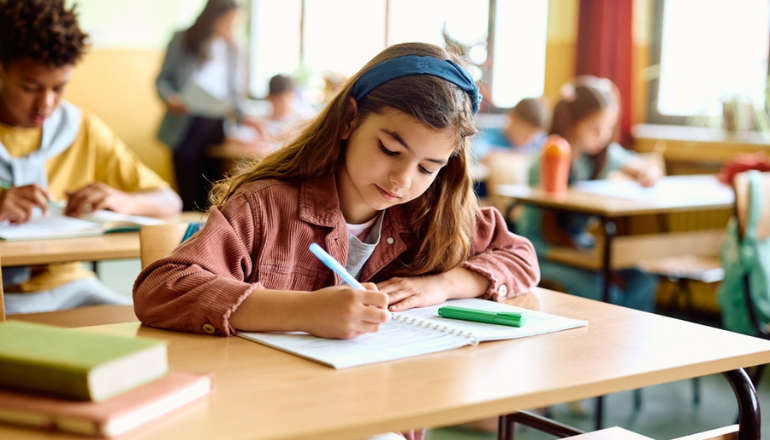
Island residents have just one week left to take part in a major consultation on proposals to tackle the high number of surplus places in Isle of Wight primary schools.
Hundreds of people have already shared their views on Isle of Wight Council plans to address almost 1,900 empty classroom seats by attending one of six in-person public meetings or completing the consultation survey.
The council is seeking the widest possible range of views and is urging everyone to have their say before the deadline for comments on Friday, 1 November.
The authority would welcome any viable alternative proposals that would reduce the level of surplus places while improving the quality of education.
Amid a rapidly decreasing pupil population due to a falling birth rate, the council must reduce school places and is consulting on the potential closure of Arreton CE, Brading CE, Cowes, Godshill, Oakfield CE and Wroxall primary schools, and a reduction in the Published Admissions Number (PAN) at The Bay CE School (from 60 to 45) and Greenmount (from 60 to 45).
Alongside this the council is proposing to expand provision for children and young people with special educational needs and disabilities (SEND) to meet a growing need across the Island.
Since the Island-wide consultation launched last month, a peer review by the Local Government Association (LGA) has described the council's proposals as a pragmatic and necessary response to the ongoing educational financial challenges on the Island.
Following the consultation, a further report will be presented to Cabinet in December detailing the responses and making recommendations about the next steps.
Councillor Jonathan Bacon, Cabinet member for children's services and education, said:
"I can't emphasise strongly enough how important it is for everyone — whether they are linked to the named schools or not — to join this Island-wide conversation to help shape the future of education on the Isle of Wight.
"This process is part of our wider draft Education Strategy which is about raising educational standards on the Island. We are at the bottom of the national tables for educational standards, we have to do something.
"The recent LGA Peer Review supports our decision to consider school closures as a way to address the issues facing the Island. It also commends our plans to expand SEND provision stating that this element of the plan is both timely and necessary."
How can I comment?
There are several ways people can take part in the consultation:
- Visit www.iow.gov.uk/schoolplace to read more and to complete the online questionnaire.
- If you are unable to access the consultation form, please e-mail your views to [email protected] or write to: Strategic Development, Floor 3, County Hall, Newport, IOW, PO30 1UD.
- Paper copies of the survey are available to collect from County Hall, High Street, Newport, Isle of Wight PO30 1UD, local libraries or can be posted out.
Why is this happening?
Because schools are funded per pupil, the oversupply of places in primary schools has had a negative impact on the standard of education children receive on the Island, preventing them from having the best opportunity for the highest quality teaching and learning within well-equipped schools.
While almost 1,900 classroom seats go unfilled in mainstream schools, there is conversely a growing demand for SEND provision across the Island with hundreds of new specialist places desperately needed.
The number of births on the Island has now reached its lowest level since 1941. This is having a significant impact on the Island where, by 2027, just 876 children are expected to start reception — a considerable drop from 1,404 in 2018.
As of October 2023 there were 1,898 unfilled school places across the Island. By September 2027, this number is forecast to rise to 3,056.
For every empty seat, schools receive £4,500 less in funding affecting resources, opportunities and the quality of education children receive.
The ongoing trend indicates that by March 2027, 22 primary schools may face budget deficits, potentially amounting to a total deficit of more than £7.4 million.
Surplus places mean schools struggle to maintain a broad and high-quality curriculum. Falling rolls also make planning and staffing decisions difficult, with schools potentially having to make year on year redundancies or having to restructure.


 Salvation Army Receives Festive Boost Thanks To December Donation From Southern Vectis
Salvation Army Receives Festive Boost Thanks To December Donation From Southern Vectis
 Isle Of Wight Council Supporting ‘Hoodies For Homeless’ Campaign
Isle Of Wight Council Supporting ‘Hoodies For Homeless’ Campaign
 Man In 20s 'Under Investigation' Following Drink-Drive Arrest
Man In 20s 'Under Investigation' Following Drink-Drive Arrest
 Big Give 2024 Sees Huge Donation For Isle Of Wight Charity
Big Give 2024 Sees Huge Donation For Isle Of Wight Charity
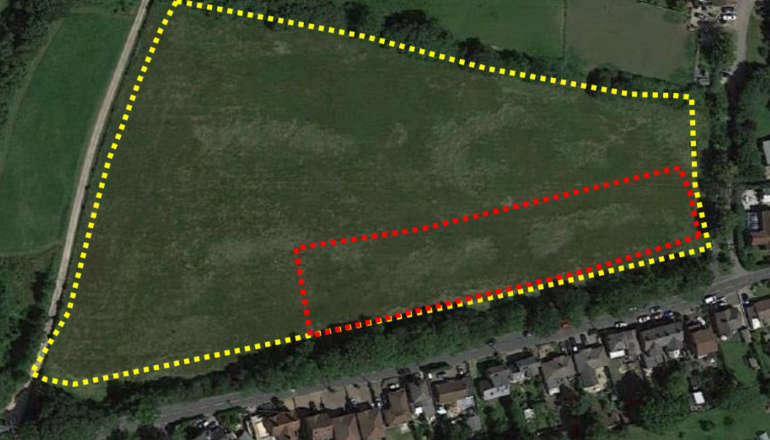 Growing Resistance Over 14 Home Development Plans For Northwood
Growing Resistance Over 14 Home Development Plans For Northwood
 Parish Council Objects To Waste Recycling Plant At Knighton
Parish Council Objects To Waste Recycling Plant At Knighton
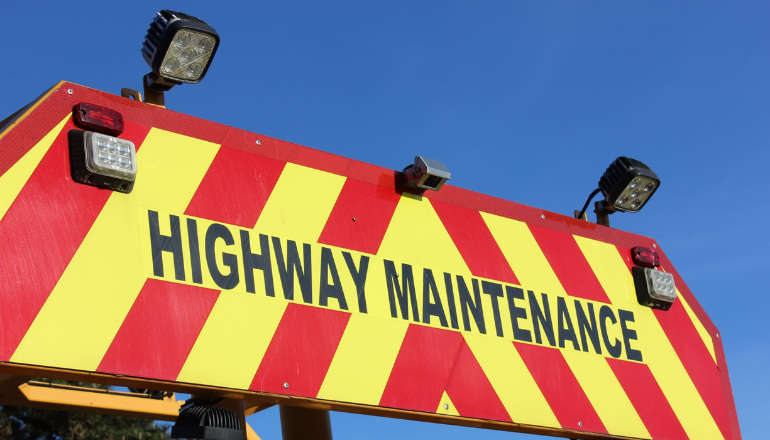 Highways Improvement Work Continues In The New Year
Highways Improvement Work Continues In The New Year
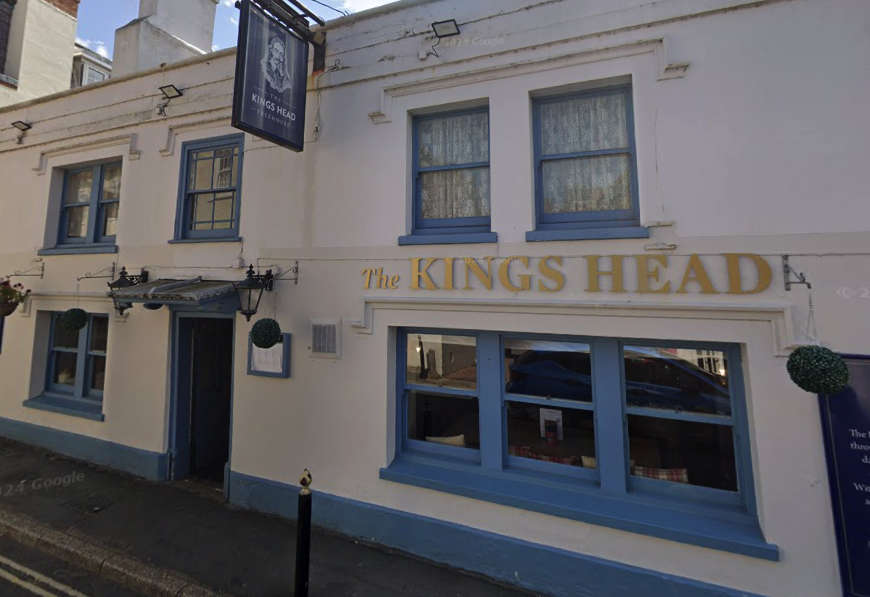 Yarmouth's Kings Head To Feature Bed And Breakfast Accommodation
Yarmouth's Kings Head To Feature Bed And Breakfast Accommodation
 New Low Cost Flats Could Come To Ryde - If Plans Get Approved
New Low Cost Flats Could Come To Ryde - If Plans Get Approved
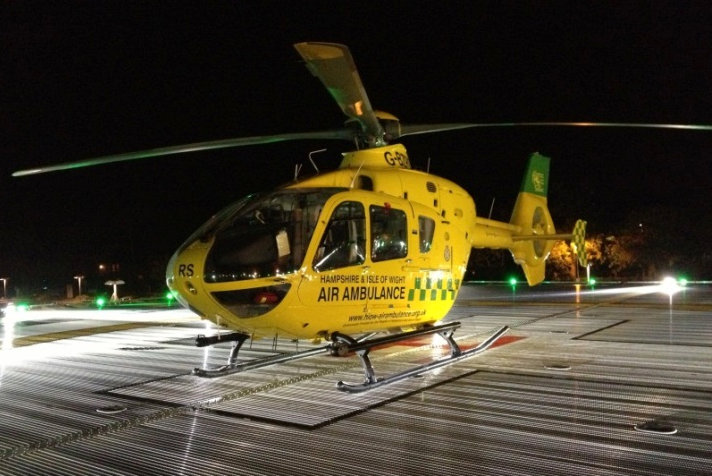 Casualty Airlifted To Hospital Following Serious Overnight Crash Near Porchfield
Casualty Airlifted To Hospital Following Serious Overnight Crash Near Porchfield
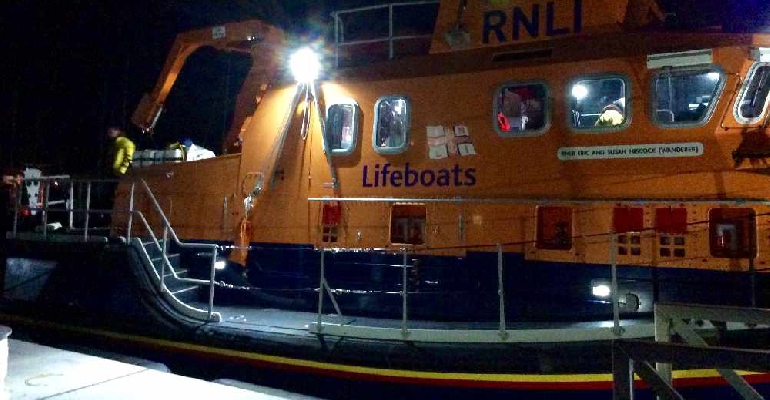 Engine Problems Lead To Yarmouth RNLI Callout To Osborne Bay
Engine Problems Lead To Yarmouth RNLI Callout To Osborne Bay
 Ryde Academy Students Donate To Two Worthy Causes At Christmas
Ryde Academy Students Donate To Two Worthy Causes At Christmas
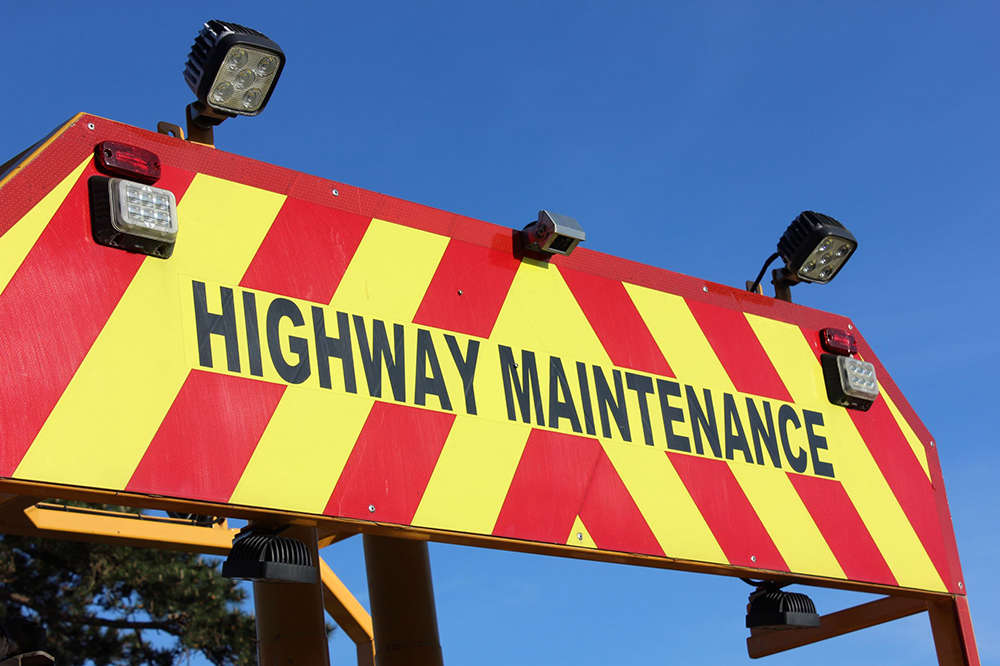 Road Improvement Works To Get Underway From The Very Start Of The New Year
Road Improvement Works To Get Underway From The Very Start Of The New Year
 Isle of Wight Youth Trust Benefits From Big Give Support
Isle of Wight Youth Trust Benefits From Big Give Support
 Council Chair 'Furious' Over Floating Bridge Replacement Fiasco
Council Chair 'Furious' Over Floating Bridge Replacement Fiasco
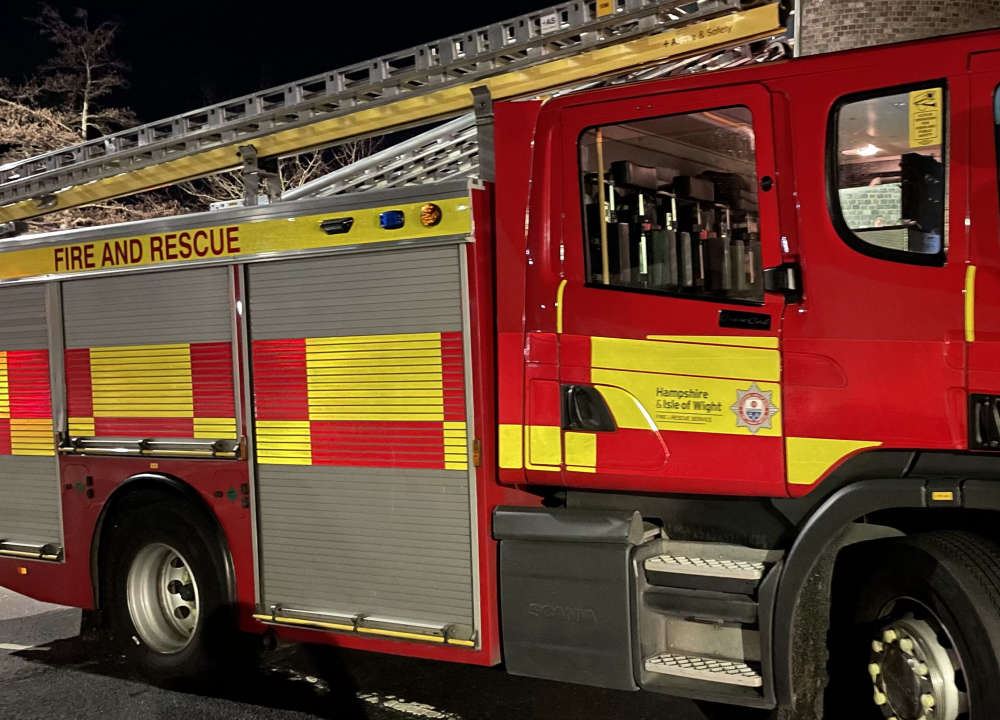 Fire Service Travel To Island Contributes To Huge Budget Overspend
Fire Service Travel To Island Contributes To Huge Budget Overspend
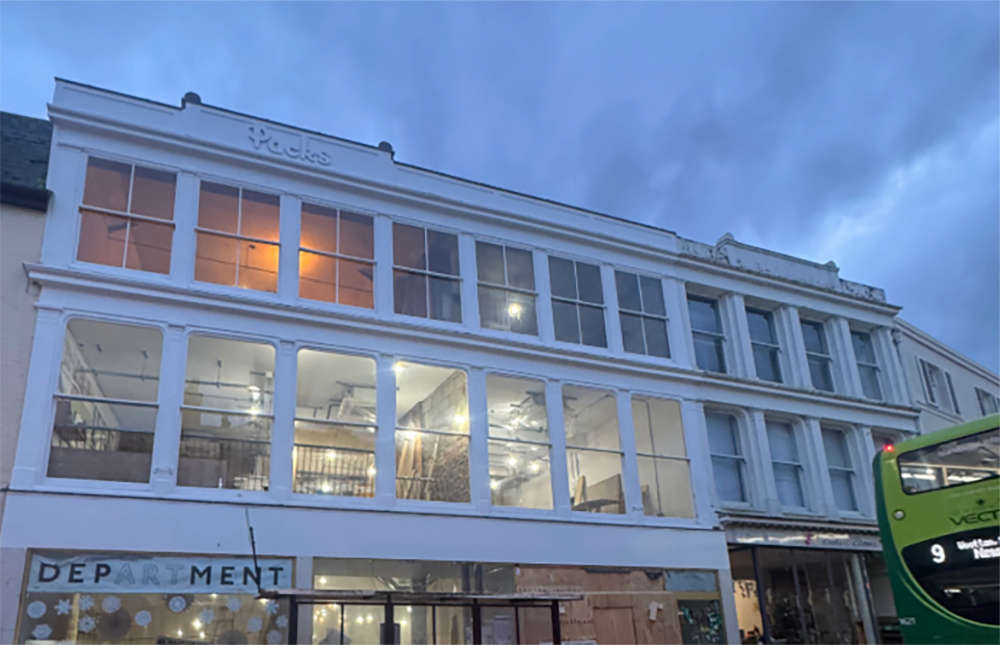 Department Approaching Completion In Ryde As Opening Date Announced
Department Approaching Completion In Ryde As Opening Date Announced
 Guidance Issued Over Sharps Disposal As Waste Teams At Risk
Guidance Issued Over Sharps Disposal As Waste Teams At Risk
 Police Warnings Over E-Scooters Ahead Of Christmas Day
Police Warnings Over E-Scooters Ahead Of Christmas Day
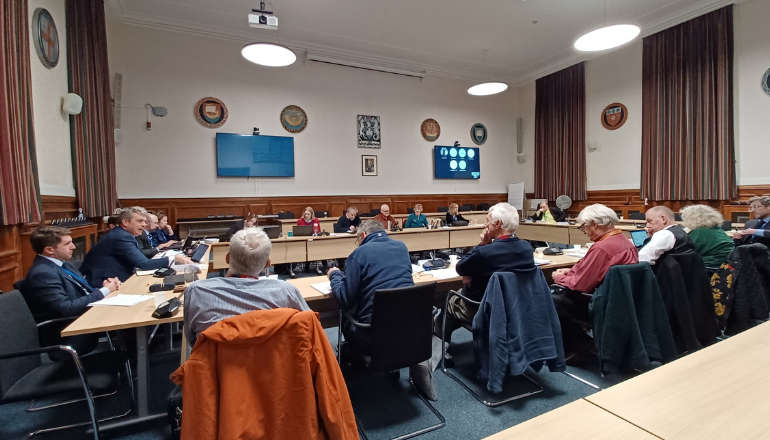 Controversial Freshwater Housing Proposal Turned Down
Controversial Freshwater Housing Proposal Turned Down


